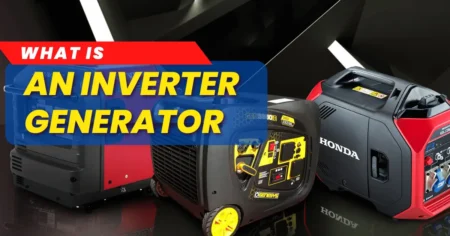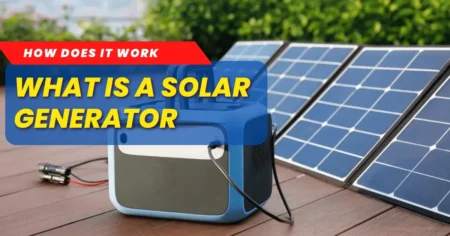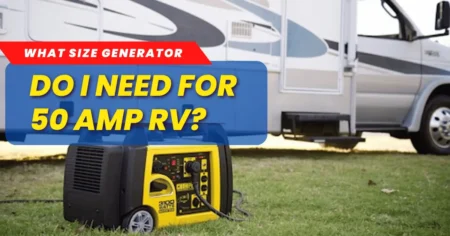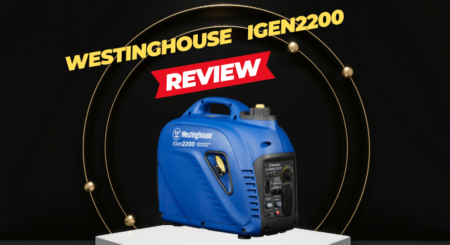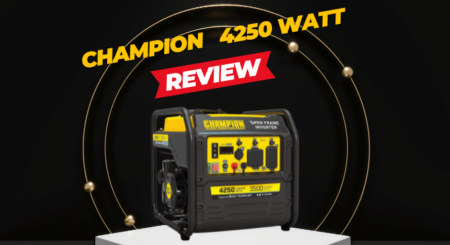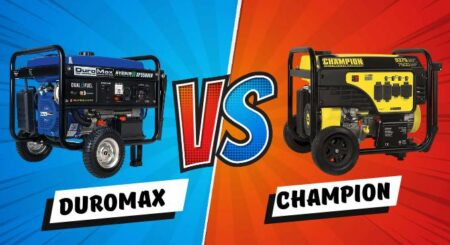What is Difference Between 10w 30 vs Sae30 Oil? The importance of oil in any internal combustion engine, including lawnmowers, cannot be overstated. Picking the right type for your mower depends heavily on the engine type and operating temperature. Among the most commonly used are SAE 30 and 10W-30 – but what makes them different? This guide will explain these two types to help you make an informed decision.
SAE stands for Society of Automotive Engineers; it’s a rating system that indicates viscosity grades or how thick or thin an oil is at certain temperatures. A higher number means thicker viscosity, while a lower number denotes thinner viscosity. Therefore, SAE 30 is relatively thicker than 10W-30 when considering cold weather performance as indicated by winter grade before it, which reflects its ability to perform optimally at colder conditions compared to regular motor oils without this additional description, even if they have similar numbers after SAE designation like in this case.
This property allows engines like those found in lawnmowers during wintertime to start faster and offer better protection against wear due to extremely low-temperature environments, which can cause damage under less suitable oils’ lubrication capability.
Understanding the difference between SAE 30 and 10W-30 can aid you in making a well-informed decision regarding selecting the correct oil for your lawnmower’s engine based on its operational requirements, particularly concerning its running temperature whether hot or cold climates, so that you may enjoy a better experience with your outdoor activity all year round.
What are 10w30 and SAE 30 Oils?
Two types of oils are used for lawnmowers- SAE 30 and 10W30. SAE 30 has a thicker viscosity, which makes it better for warm weather conditions. 10W30 is thinner and more suitable for colder climates. SAE 30 provides superior lubrication for your engine but may cause the motor to run hotter than usual. 10W30 does not offer as much protection against wear, but it reduces the engine’s temperature while operating.
To determine which type of oil suits your needs, consult your owner’s manual or research online about what works best with your specific model mower. Each type of oil comes with advantages and disadvantages that should be considered before deciding what to use in their lawn mower engines.
Generally speaking, SAE 30 is great at protecting parts from corrosion due to its thick consistency, whereas 10W30 offers improved fuel efficiency by reducing friction in tight places such as valves and pistons – this also helps reduce heat build-up within an engine! When you’re considering using either SAE 30 or 10w30 motor oil in your lawnmower’s engine, take into account all factors, such as climate temperatures where you live for instance; if you live somewhere cold, then a thinner oil like 10w30 would work better, whereas if hot, then thicker oil such as SAE 30 can help keep things running smoothly without overheating.
Ultimately, however, seek advice from the manufacturer’s recommendations regarding motor oils to ensure optimal performance from both short-term and long-term use!
What is the Difference Between 10w30 and SAE 30 Oil?
Regarding motor oil for your lawnmower, you have two options: SAE 30 and 10w30. Both provide effective lubrication, but they differ in their properties and the conditions they are best suited for. SAE 30 is a single-weight oil with a thicker viscosity that maintains its structure even at high temperatures.
This makes it ideal for engines that run hot or fast, as this type of oil is less prone to breaking down under these conditions. However, when cold weather strikes, it won’t be as efficient since its viscosity remains thick even in lower temperatures.
On the other hand, 10w30 is thinner and flows more easily under colder conditions while still protecting against wear and tear due to its higher viscosity level—but it isn’t as effective at preventing engine deposits at elevated temperatures compared to SAE 30.
Given all this information, which kind of oil you should use depends largely on where you live (i.e., climate) and what type of engine your mower has; each requires unique levels of protection from any given motor oil product to remain running smoothly over time.
What is 10W30?
SAE 30 and 10w30 are both motor oil grades that can protect engine parts when the engine is hot. However, due to its lower viscosity of 10w, 10w30 will remain thinner than SAE 30 even when it gets cold – a very important factor for people living in areas with cold winters. This lower viscosity allows the oil to start protecting engine components at colder temperatures more quickly.
While SAE 30 has a higher viscosity that provides better lubrication protection once the engine temperature increases, it does not perform as well as 10w30 in colder temperatures. Thus, if you live where winter temperatures drop below freezing, then using an oil grade like 10w30 may benefit your vehicle’s overall performance and longevity.
Key Features
1) Performance
10w30 is an excellent choice of oil for those living in variable climates. It can remain effective at high temperatures for a lengthy period, as well as having low viscosity when cold. This makes it ideal for areas where one moment can be chilly and the next scorching. Wearing layers such as a sweater one morning but shorts by afternoon?
No problem! 10w30 won’t thicken up and prevent your engine from starting due to temperature shifts. Combined with its durability, this could be the perfect oil to keep your vehicle running smoothly all year round.
2) Viscosity and Pressure
SAE 30 and 10w30 are both motor oils, but there is an important difference between them. 10w30 is thinner than SAE 30, which will not create as much pressure when running. This can potentially lead to a longer life for your engine due to less wear from the pressure created by thicker oil. Although they have the same viscosity in high temperatures, during colder weather, 10w30 provides better circulation when starting up your engine compared to SAE 30, which takes more time to circulate properly.
Thus, using 10w30 instead of SAE 30 increases efficiency while still providing the necessary protection for your engine, making it more reliable and efficient over time.
3) Formation
10w30 is a type of motor oil that can be bought in either conventional or synthetic form. Conventional 10w30 consists of crude oil mixed with additives, while synthetic 10w30 has enhanced performance and helps to protect the engine over time.
When changing your car’s oil, it is important also to replace the oil filter – this will help prevent any buildup from occurring in your vehicle caused by added substances within the motor oil.
4) Price
10w30 oil is highly sought after for its affordability. Many brands sell it at a price point of less than $5, often closer to the $5 mark. Consumers can also expect to pay between $5-$10 for this particular type of motor oil, making it an excellent value product.
This is why 10w30 has become so popular amongst customers looking for quality oil without breaking the bank. Its low cost and reliable performance make it a great choice when shopping around for motor oil needs.
What is SAE 30?
The Society of Automotive Engineers (SAE) created a motor oil classification system based on its viscosity. The scale ranges from 0 to 50, with higher numbers indicating thicker oils. An SAE 30 rating means that the oil has a viscosity of 30, which is suitable for most vehicles, such as cars and trucks. Knowing the right type of oil to use prevents damage to your engine and improves its efficiency in the long run.
By understanding what SAE stands for and how it works, you can make an informed decision when choosing motor oil for your vehicle.
Key Features
1) Performance
Many people who use SAE 30 motor oil report that they are satisfied with it. Though more costly than other oils, the higher cost is worth it because SAE 30 can protect engines that face long periods of high temperatures. This oil type provides superior engine protection and lasts longer under extreme conditions.
Furthermore, it keeps moving parts lubricated for a smoother operation throughout its life cycle in the engine. Many car owners have been impressed by its performance and continue to rely on SAE 30 as their go-to motor oil.
2) Oil Formation
Oil for cars can contain detergents and additives that trap dirt and help keep the engine free from sludge. However, some car owners may not like using oils with these added elements as they feel it does more harm than good to their vehicle. If you don’t want an oil with the additives, then make sure it is labeled ‘detergent-free’ when purchasing. This way, you can know what’s in your oil before putting it into your engine.
3) Viscosity and Pressure
SAE30 oil is specially formulated to withstand intense pressure and protect against the heat caused by friction between moving parts. Its viscosity rating of 30 means it will flow well in regular vehicles, even under hot conditions. It has been tested for long periods in extreme temperatures, proving that it can handle the heat generated by engines without being adversely affected.
SAE30 oil allows your engine to get enough lubrication to keep running without worries, so you can confidently drive on any terrain knowing your vehicle is taken care of.
4) Price
When shopping for a product, the brand name can be an important factor when determining price and quality. If you are still getting familiar with the company associated with the item, try to do some research beforehand. Generally speaking, products made by well-known companies will likely cost between $10-$15.
But it’s also possible that even if it is from a lesser-known manufacturer, it could still offer good value for money. It pays to shop around and compare prices before making any purchase decisions, so you know what you’re getting for your money.
How to Choose Between 10w 30 vs Sae30 Oil According to a Season?
For smaller engines such as lawnmowers, 10w30 is the more suitable oil to use over SAE 30 as it may be too thick for its parts. However, if you are in a colder climate, this doesn’t make much difference when deciding between the two. If your car is older, however, and you want to get the best out of both worlds, then swapping between SAE 30 in warmer months and 10w30 during winter weather could benefit your engine’s moving parts with protection from thicker oil while also taking advantage of lower viscosity from cold temperatures.
Ultimately, depending on where you live, what type of engine you have, and how old it is will affect which oil would best suit its requirements.
Is it a Good Option to Mix 10W30 and SAE 30?
It is possible to mix SAE 30 and 10W-30 motor oils together for use in lawn mowers. However, this combination is not recommended as these two types of oil have different viscosity and density levels. If used in conjunction, it may work for the mower but has the potential to damage its engine over time. 10W-30 has higher viscosity at low temperatures than SAE 30 oil, which does not retain its thickness when cold.
Additionally, 10W-30 is a thinner but heavier-weight oil, while SAE 30 has a thicker consistency yet lighter weight than other motor oils. Understanding the difference between these two can help one decide better what type of motor oil should be used in their mower or vehicle engine.
Knowing which type of motor oil suits your vehicle best will provide long-term benefits such as improved performance and preventing possible damage from occurring due to improper use or mixing liquids incompatible with each other’s properties and compositions.
Therefore, it’s important to pay close attention when deciding what kind of motor oil, you want for your car or machinery to ensure maximum performance and longevity from your equipment.
10W30 Vs. SAE 30 Oil: Which is the Best to Use in the Lawnmower?
Lawnmowers require oil to function properly, and two of the most commonly used types are SAE 30 and 10w30. The main difference between them is their weight: SAE 30 is lighter and designed for warmer temperatures, while 10w30 works better in both hot and cold climates. It’s important to check your owner’s manual to determine which type of oil best suits your lawn mower.
Generally speaking, SAE 30 should be sufficient for most people; however, if you live in an area with freezing winters, then it may be a good idea to switch over to 10w30 during the colder months. No matter what type of oil you decide on, make sure that you regularly check its levels and change it as per the schedule specified in the owner’s manual so that your lawn mower continues running optimally over time.
Is Mixed Oil Bad for Lawnmowers?
Choosing the right oil for your lawn mower engine is essential, and it can be confusing trying to decide between SAE 30 and 10w30. SAE 30 is usually used in warmer weather, while 10w30 is typically chosen in colder conditions. While mixing them may seem like a good idea, it should generally be avoided as this could cause damage to your mower engine.
Additionally, even if they are of similar grades, never mix oils from different manufacturers, as this can have adverse effects on the performance of your machine. To ensure optimum results while using both these oils, you must make sure that their grades are almost identical before combining them together.
Conclusion
Deciding between SAE 30 motor oil and 10W30 motor oil for your lawnmower or generator can be quite a challenge. However, you should not worry because whichever one you choose will likely work well with your equipment. The key is to look at the environmental conditions of your area, whether or not there is a budget constraint, and if that matches with the characteristics of either of these oils. SAE 30 motor oil has been around for years, and it’s good in most climates without extreme hot weather, while 10W30 is typically more suitable for areas prone to higher temperatures.
It all boils down to which fits best into your usage scenario, so examine how cold it gets during winter months or the amount of heat you experience during summer days before choosing an option from either range. Furthermore, evaluate based on what type of engine each works best with and its viscosity index; both are important when making this decision.
In conclusion, by considering climate conditions alongside other factors such as budget restraints and technical specs, users can determine which synthetic oil suits their purposes better, SAE 30 or 10W30 motor oil?




